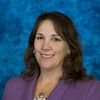Processing Your Payment
Please do not leave this page until complete. This can take a few moments.
- News
-
Editions
-
- Lists
-
Viewpoints
-
Our Events
-
Event Info
- Women's Leadership Forum 2025
- On the Road with Mainebiz in Bethel
- Health Care Forum 2025
- On The Road with Mainebiz in Greenville
- On The Road with Mainebiz in Waterville
- Small Business Forum 2025
- Outstanding Women in Business Reception 2025
- On The Road with Mainebiz in Bath
- 60 Ideas in 60 Minutes Portland 2025
- 40 Under 40 Awards Reception 2025
- On The Road with Mainebiz in Lewiston / Auburn
- 60 Ideas in 60 Minutes Bangor 2025
Award Honorees
- 2025 Business Leaders of the Year
- 2024 Women to Watch Honorees
- 2024 Business Leaders of the Year
- 2023 NextUp: 40 Under 40 Honorees
- 2023 Women to Watch Honorees
- 2023 Business Leaders of the Year
- 2022 NextUp: 40 Under 40 Honorees
- 2022 Women to Watch Honorees
- 2022 Business Leaders of the Year
-
-
Calendar
-
Biz Marketplace
- News
- Editions
- Lists
- Viewpoints
-
Our Events
Event Info
- View all Events
- Women's Leadership Forum 2025
- On the Road with Mainebiz in Bethel
- Health Care Forum 2025
- On The Road with Mainebiz in Greenville
- On The Road with Mainebiz in Waterville
- + More
Award Honorees
- 2025 Business Leaders of the Year
- 2024 Women to Watch Honorees
- 2024 Business Leaders of the Year
- 2023 NextUp: 40 Under 40 Honorees
- 2023 Women to Watch Honorees
- 2023 Business Leaders of the Year
- + More
- 2022 NextUp: 40 Under 40 Honorees
- 2022 Women to Watch Honorees
- 2022 Business Leaders of the Year
- Nomination Forms
- Calendar
- Biz Marketplace
A Maine kelp business on global stage at World Economic Forum in Davos
 Courtesy / Atlantic Sea Farms
From left, Atlantic Sea Farms CEO Briana Warner, Coca-Cola Co. Vice President of Global Policy and Sustainability Michale Goltzman, and Ecuador's Minister of Environment Gustavo Manrique spoke at a World Economic Forum session. It was moderated by University of California Santa Barbara professor Douglas McCauley.
Courtesy / Atlantic Sea Farms
From left, Atlantic Sea Farms CEO Briana Warner, Coca-Cola Co. Vice President of Global Policy and Sustainability Michale Goltzman, and Ecuador's Minister of Environment Gustavo Manrique spoke at a World Economic Forum session. It was moderated by University of California Santa Barbara professor Douglas McCauley.
The CEO of a Biddeford kelp processing company had some lessons to share with international business and political leaders at the World Economic Forum’s annual meeting, held May 22-26 in Davos, Switzerland.
In a session on the "blue economy," Briana Warner discussed how Atlantic Sea Farms' business model and products are driving positive change for people and the planet in the face of climate change.
Warner, a 2020 Mainebiz Next list honoree, was invited as one of 20 innovators from around the world to be part of the forum’s UpLink Top Innovator program.
"Davos has long been seen as an annual forum where positive and innovative change can be made, but also as a place where the international elite and the world's largest companies are overrepresented in influencing the global economy in their direction,” she said.
“The opportunity to champion a different approach to building food systems in the face of climate change, by putting people and planet first, and by showing how business can be used as a force for good rather than focused purely on profit, was one that I was glad I was able to take.”
The World Economic Forum is an international organization committed to improving the state of the world, and holds global strategic summits for leaders to come together to shape a positive future in multiple areas.
UpLink is the forum’s network of innovators designed to provide opportunities to help scale and accelerate the impact of their ventures.
Warner spoke as part of a panel called “Invest in Blue” along with Ecuador's minister of environment, Gustavo Manrique, and the Coca-Cola Co.’s vice president of global policy and sustainability, Michale Goltzman.
The panel was convened to discuss why supporting ocean health is good for business. Panelists discussed their actions to promote ocean health, focusing on issues including plastic pollution, blue carbon and ocean nature-based solutions for climate.
Atlantic Sea Farms, the first commercial seaweed farm in the U.S., uses regenerative kelp farming to diversify Maine’s coastal economy in the face of climate change, while mitigating some of its effects.
Currently working with 27 partner farmers — almost all of whom are lobstermen who farm kelp in their off season from fishing — the company provides free seed and guarantees purchase of all kelp grown. Atlantic this year is on track to harvest more than 1 million pounds of cultivated kelp, which is sold in various forms for chefs, product developers and consumers.
“We are working to show the amazing ways that Maine's coastal communities are determining their own future in the face of a dramatically changing planet,” said Warner.
During the panel discussion, Warner focused on the idea of systemic change.
“I talked about our mission, which is focused on people and planet first,” she said. “I think that’s a divergence from ‘business as usual’ where, for example, people promote the product and then corporate social responsibility is tagged on.”
Warner said Atlantic fishermen-partners themselves exemplify responsible business.
“They are making the ocean healthier and adapting to climate change, not because of government subsidies or carbon credits, but because it's the right thing to do for them, for the ocean they have spent generations protecting, and for their children,” she said.
She also found encouragement in other companies that, like Atlantic, have people and planet at their core.
“It was really inspiring to talk with the other innovators,” she said.
For example, she spoke with folks at a company that’s creating a global clearinghouse of academic research on various diseases — “incredibly interesting people who are looking to really disrupt the model of business and ensure that good ethics and good business is at the core of what they do,” she said.









0 Comments